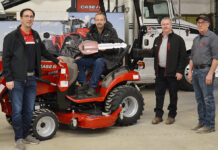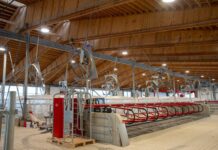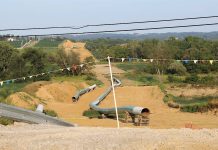We have watched civilization marching forward, one invention at a time, over the past couple of hundred years.
It is interesting to note that so many of the major accomplishments evolved from the agricultural arena.
Accomplishments. Louis Pasteur discovered that heat killed the microorganisms that turned wine sour. His process soon was applied to all sorts of other liquids and eventually had a profound effect on dairy farming.
This was in 1862, the same year that John Allen demonstrated his high-speed horizontal steam engine, and Adolphe-Eugene Beau de Rochas patented his four-stroke internal combustion engine.
It was in 1872 that Amanda Jones received a patent for vacuum processing to preserve food. One year later, Fred Hatch, a farmer from Illinois, built the first grain silo.
It was a tall, square, wooden structure, and it changed farming in numerous ways.
Just one year after that, Anna Baldwin invented the suction milking machine. It is almost impossible to comprehend how much this simple invention alone moved dairy farming forward.
The irony of such inventions meant that things could be done faster on the farm, so many sons and daughters were sent out of the nest, urged to hire out rather than stay on the family farm.
I had long assumed that most young men in the late 1800s were probably vying for the right to leave the farm.
Diary excerpts. In the diary of Alexander Smalley, I learned that this was not always the case.
He writes, “Father and I exchanged words this evening. He sees no need for me to stay on since nephew Bennie can do much of what I once helped Father accomplish. The very notion of hitching up the horse before dawn every day to travel in to the dirt and noise of the city holds no appeal. I am finding myself in a disgruntled state this evening.”
Despite modernization, working conditions in industrialized cities were, in many cases, not better than those on the farms of the late 1800s.
City laborers found themselves working from sun-up to sun-down, many times putting in more hours than all the chores between morning and evening milking.
For those workers who lived outside of the city, imagine the long ride home by horse and buggy at the end of that day.
It was this part of the equation that lured some away from the farm and into homes in the city.
Biggest change. But absolutely nothing changed farming more than electricity.
As the buzzing wires came to the country, just think of how much more efficiently work could be accomplished both in the barn and in the home than ever before.
A one-horse motor could do as much work in an hour as a man could do in a day.
I have tried to imagine the drastic change this brought, but I almost cannot comprehend it.
An electric pump eased the back-breaking work of hauling in both the water and the wood used to heat the water. This alone could free up the time for more efficient use of labor.
Today, we flip a switch, pull chilled milk from the refrigerator, turn a faucet with so little regard to all that we have been given.
Get 4 Weeks of Farm and Dairy Home Delivered











